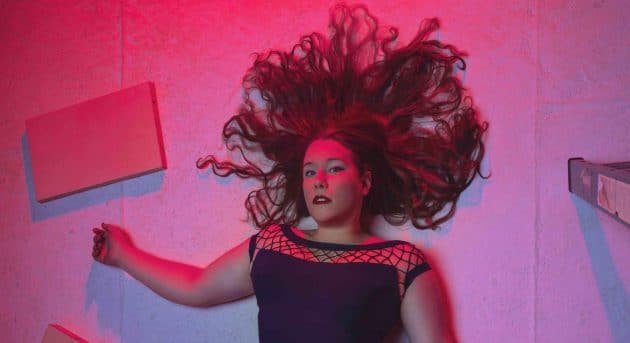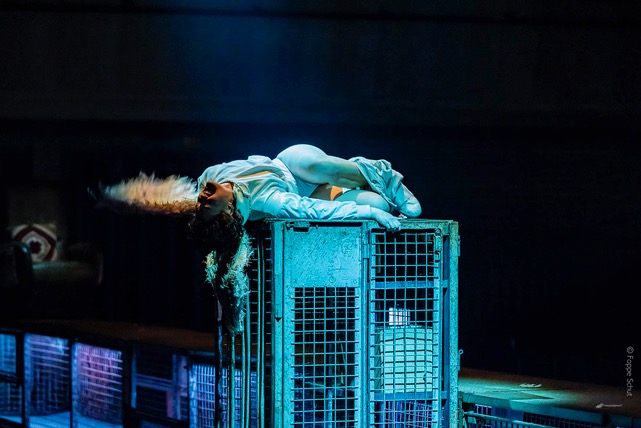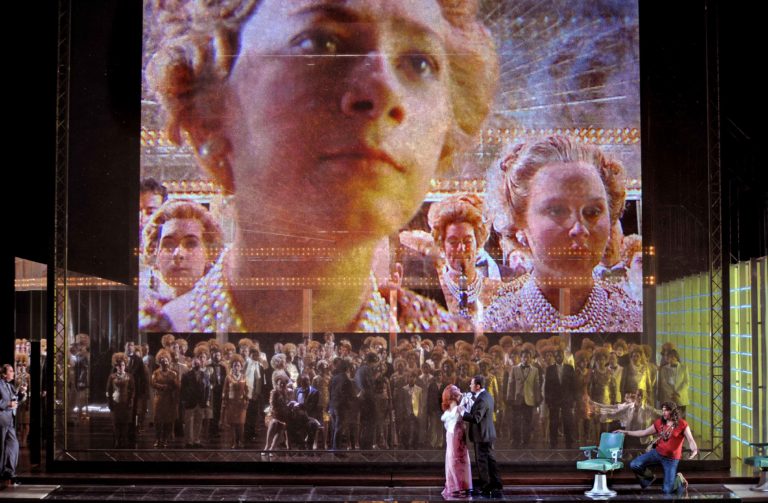“Not one would mind”
What would you do if you knew that this was the last night of the world?
This question is at the heart of the new chamber opera by Catalan composer Agustí Charles and his librettist Marc Rosich. It represents the subliminal essence of the piece and appeals to the really ‘important things’ in life at moments when it is in imminent danger. For a dream heralds the end of the world. Seven couples search for their way through the last evening on earth. They go through feelings of repression, of struggling and negotiating, of fear, hope, anger, resilience and acceptance.
But it is not only the characters in the play who are challenged to focus on what is ‘important’, to be humble before life, before nature and to respect our limits. The audience is also asked to question themselves and the primal human striving and actions that make us ever higher, ever further and ever more powerful, driven by the desire for influence and control.
This commissioned work for the Staatstheater Augsburg not only adapts Ray Bradbury’s short story of the same name as an opera, but also weaves numerous motifs from other utopian and dystopian works into the piece. Jorinde Keesmaat uses the characters to create an exemplary kaleidoscope of human coexistence in a world that is already dangerously teetering, flickering and shaking, threatening to come apart on its hinges. The director and her team are particularly interested in how people deal with the loss of control over their ‘made’ world in the face of their own end, a world that has seemed docile and humane for so long.
Originally, Bradbury literarized in his stories the constant threat of nuclear catastrophe that dominated the thoughts of many people during the Cold War. But in our present day, when not only political tensions keep the world on tenterhooks, but also a palpable climate change with natural disasters chasing each other with ever-increasing frequency and far-reaching consequences demands our attention, the end of the world takes on a whole new concreteness, urgency and relevance.
The characters in the play naively ask: “Do we deserve this?”. The answer to this is very simple: we humans are not fulfilling our duty of care towards each other and our responsibility for nature and our environment and are thus inexorably digging our own grave even though we know that our egocentric view of the world, which is riddled with arrogance, presumption and megalomania, cannot have a future.
In Charles’ chamber opera, the critical mass of human missteps has already been reached and the end of the world is imminent. The characters are aware of this and it seems clear to them that man is the flaw in the matrix of the world, but remorse and a sense of responsibility are still far from being felt.
Sara Teasdale’s poem There Will Come Soft Rains (1918) is a leitmotif throughout the libretto and comments on the banality of human endeavor. It puts humanity’s position in relation to nature into perspective against the backdrop of environmental sins, genetic research and climate change. The human species is not the crown of creation and the star around which everything revolves, but merely an entertaining caper of nature, a tiny, finite moment in the infinite universe.
This man-made dichotomous relationship between man and nature is reflected in Charles’ work on a formal level: the interactive use of electronic means is an aesthetic pillar of the composer’s work and is also used visibly and audibly in The Last Night of the World. Form and content are combined here, as the electronics modify, control and alienate the natural sound of the human voice and the instruments, some of which were newly developed by Charles. In addition, the most precise measuring instrument of the human body, the ear, is unsettled by altered sound spaces. The appearance of complete control alternates with a feeling of disorientation and being at the mercy of others.
Science fiction seems closer than the genre originally promised. The evening will leave a bland aftertaste, as we are forced to question ourselves as human beings and our role in the world.
Composer – Agusti Charles
Libretto – Marc Rosich
Conductor – Sebastiaan van Yperen
Stage Director – Jorinde Keesmaat
Set & Light – Nico de Rooij
Costume – Pascal Seibicke
Dramaturge – Tamara Yasmin Quick
Singers
Jihyun Cecilia Lee
Luise von Garnier
Claudio Zazzaro
“Exper- tin für Urauffungen – Expert on world premieres
A3 Kultur
A contemporary chamber opera that already threatens the last night of the world in its title can hardly be anything but disturbing. It quickly became clear that—and how—in this hopelessness, everything is universally connected to everything else. After nearly two hours of auditory irritation, a suppressed instinct to flee, and a production (by Jorinde Keesmaat) that, together with set designer Nico de Rooij, externalized the emotional chaos of the characters involved, one can fully understand the theater’s own promotional text: “The appearance of complete control alternates with a feeling of disorientation and helplessness.”
https://a3kultur.de/positionen/alles-seltsam
A radio review
https://www.deutschlandfunkkultur.de/urauffuehrung-der-charles-oper-the-last-night-of-the-world-in-augsburg-100.html


